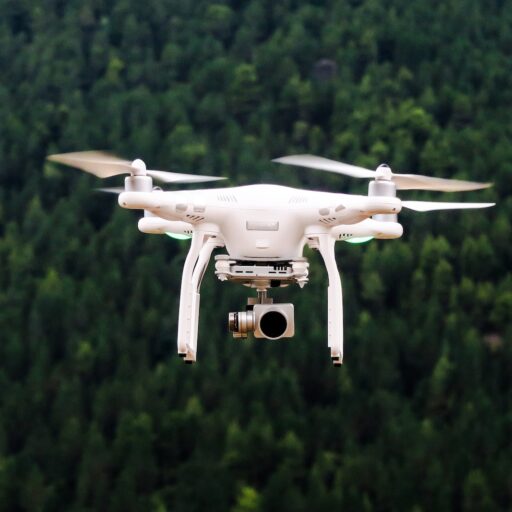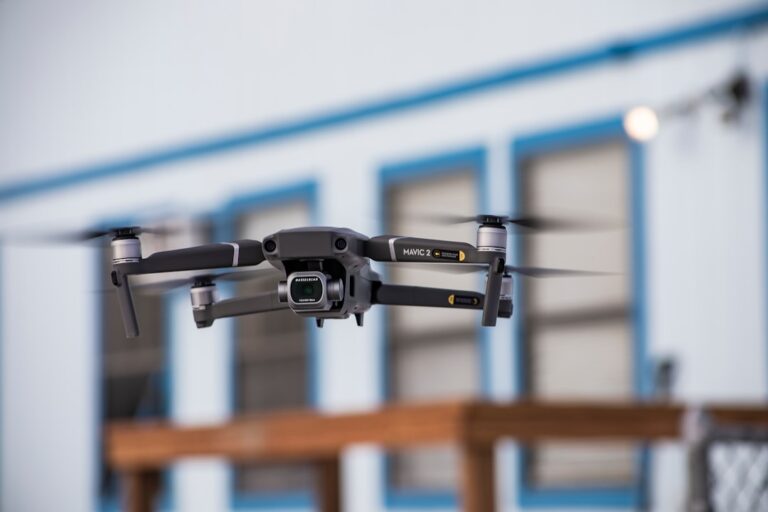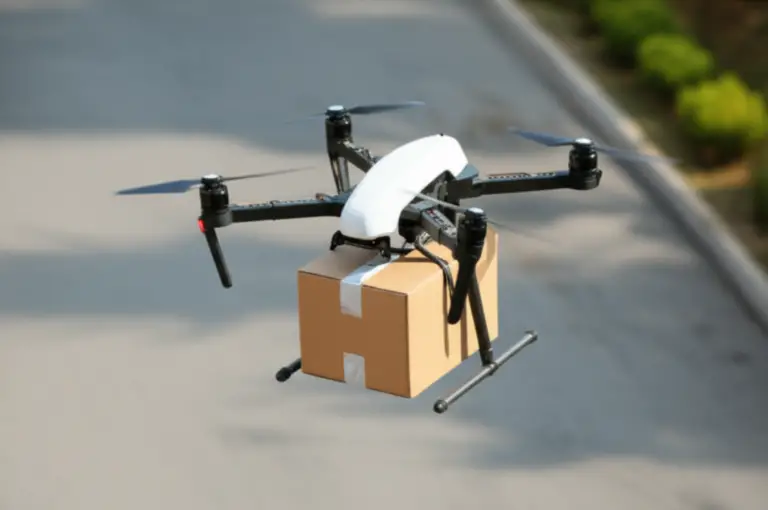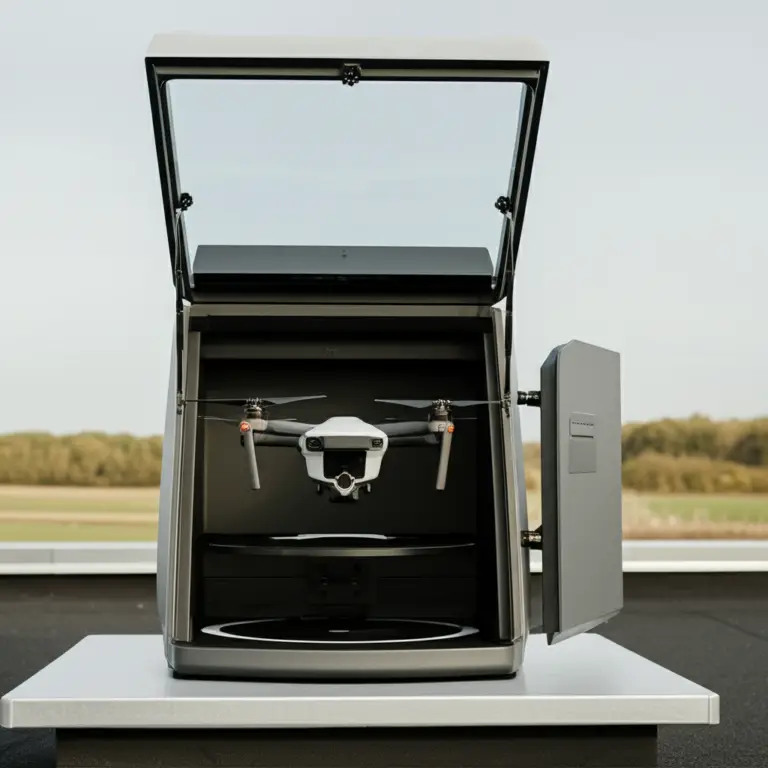Support our educational content for free when you purchase through links on our site. Learn more
Which Company Is Leading in Drone Technology? Top 15 in 2025 🚀
Picture this: you’re standing on a cliff’s edge, drone controller in hand, watching your UAV effortlessly weave through towering pines and capture breathtaking 5.1K footage—all while avoiding every obstacle like a seasoned pilot. Sounds like sci-fi? Not anymore. The drone industry is soaring faster than ever, with companies battling to lead the pack in innovation, autonomy, and market dominance. But who truly rules the skies in 2025?
In this comprehensive guide, we unveil the top 15 drone companies pushing the boundaries of aerial technology—from DJI’s consumer dominance to Skydio’s AI wizardry, and Zipline’s life-saving medical deliveries. Whether you’re a hobbyist, a commercial pilot, or a tech enthusiast, we break down what makes each leader unique, what trends are shaping the future, and how to pick the perfect drone for your mission. Ready to find out who’s flying highest and why? Let’s take off!
Key Takeaways
- DJI remains the global leader with over 70% market share, offering unmatched design, camera quality, and ecosystem support.
- Skydio leads in autonomous flight, delivering industry-best obstacle avoidance and AI-powered navigation.
- Enterprise and defense sectors are dominated by companies like Parrot, Lockheed Martin, and Boeing, focusing on specialized UAVs.
- Emerging trends include AI integration, drone swarms, hydrogen fuel cells, and urban air mobility (eVTOLs).
- Choosing the right drone depends on your mission, budget, and ecosystem preferences—from cinematic filming to industrial inspection or delivery.
- Stay informed on regulations and safety features to ensure legal and secure drone operations.
👉 Shop top drones and brands:
- DJI Mavic Series: Amazon | DJI Official Website
- Skydio 2+: Amazon | Skydio Official Website
- Parrot ANAFI USA: Amazon | Parrot Official Website
Table of Contents
- ⚡️ Quick Tips and Facts
- 🚀 The Dawn of Drones: A Brief History of UAV Innovation
- 🏆 Understanding Drone Leadership: What Defines a Market Leader?
- 👑 The Titans of the Sky: Who’s Really Leading Drone Technology?
- 💡 Beyond the Big Names: Emerging Trends and Niche Innovators
- ⚙️ Key Technologies Driving Drone Dominance
- 🤔 Choosing Your Champion: Factors to Consider When Selecting a Drone
- 🔮 The Future is Now: What’s Next for Drone Technology Leaders?
- 🗺️ Navigating the Drone Landscape: Empowering Your Decisions
- ✅ Conclusion: The Ever-Evolving Race for Aerial Supremacy
- 🔗 Recommended Links: Dive Deeper into the Drone World
- ❓ FAQ: Your Top Drone Technology Questions Answered
- 📚 Reference Links: Our Sources for Aerial Insights
⚡️ Quick Tips and Facts
Welcome to the sky-high world of drones! Before we dive deep into the aerial arena, here are some quick facts and tips from your expert drone pilots at Drone Brands™ specializing in Aerial Adventures with Drones:
- ✅ DJI dominates the global drone market with over 70% market share as of 2024, making it the go-to brand for most consumers and prosumers.
- ✅ The global drone technology market is projected to soar from $33.9 billion in 2024 to $61.2 billion by 2029 (BCC Research).
- ✅ Autonomy and AI are the hottest trends, with companies like Skydio pushing the envelope on obstacle avoidance and self-piloting drones.
- ✅ Applications are vast: agriculture, logistics, filmmaking, defense, public safety, and even medical deliveries.
- ✅ Regulations matter! Always check your local drone laws and regulations before taking off. See our Drone Laws and Regulations for the latest updates.
- ✅ Battery life and payload are key specs to consider depending on your mission.
- ✅ Safety first! Choose drones with robust obstacle avoidance and reliable customer support.
Keep these in your flight bag as we explore who’s leading the drone tech race and why!
🚀 The Dawn of Drones: A Brief History of UAV Innovation
From Military Roots to Consumer Skies
Drones, or UAVs (Unmanned Aerial Vehicles), started as military tools decades ago—think reconnaissance and surveillance. The 1990s and early 2000s saw the rise of defense giants like Lockheed Martin and Boeing pioneering UAVs such as the RQ-170 Sentinel and ScanEagle.
But the real game-changer came when companies like DJI, founded in 2006 in Shenzhen, China, democratized drone tech by making it affordable and user-friendly. Suddenly, aerial photography, filmmaking, and even agriculture had a new wingman.
Key Milestones:
- 1994: Parrot founded, early leader in consumer drones.
- 2006: DJI enters the scene, revolutionizing consumer drones.
- 2014: Skydio and Autel Robotics emerge, focusing on autonomy and imaging.
- 2016-2020: Delivery drones and medical logistics take off with companies like Wing (Alphabet) and Zipline.
The drone industry has evolved from niche military tech to a booming global market with diverse applications. And trust us, the sky is just the beginning.
🏆 Understanding Drone Leadership: What Defines a Market Leader?
Before crowning the kings and queens of drone tech, let’s break down what makes a company a true leader in this fast-evolving field.
Innovation and Research and Development (R&D)
Leaders invest heavily in R&D to push boundaries—think AI-powered autonomy, advanced sensors, and new propulsion systems. DJI’s continuous firmware updates and Skydio’s AI-driven obstacle avoidance are prime examples.
Market Share and Revenue Dominance
Market share is a strong indicator. DJI leads with over 70%, but companies like Parrot and Autel Robotics hold significant niches. Revenue growth and global reach also matter.
Technological Advancements and Breakthroughs
Who’s first to launch new tech? Skydio’s autonomous flight, Wing’s drone delivery networks, and Zipline’s medical supply drops showcase breakthrough innovation.
Ecosystem and Integration Capabilities
A drone isn’t just hardware—it’s software, accessories, and services. DJI’s ecosystem includes drones, controllers, apps, and cloud services. Companies with strong ecosystems create stickier customer relationships.
Customer Trust, Safety and Reliability
Safety features like obstacle avoidance, secure data transmission, and reliable customer support build trust. This is critical for enterprise and public safety sectors.
👑 The Titans of the Sky: Who’s Really Leading Drone Technology?
Ready for the ultimate drone showdown? Here’s our expert take on the top 15 companies leading drone technology in 2024, rated on design, functionality, innovation, and market impact.
1. DJI: The Unrivaled Consumer & Prosumer King
| Aspect | Rating (1-10) |
|---|---|
| Design | 9 |
| Functionality | 10 |
| Innovation | 9 |
| Market Share | 10 |
| Customer Support | 8 |
Why DJI? DJI is the undisputed giant with a 70%+ market share. Their Mavic series, Mini 2, and enterprise M30T drones are staples for aerial photographers, filmmakers, and industrial users alike.
Features & Benefits:
- Compact, foldable designs perfect for travel.
- Advanced obstacle avoidance with multiple sensors.
- OcuSync transmission for low-latency video.
- Robust app ecosystem (DJI Fly, DJI Pilot).
- Strong global support network.
Drawbacks:
- Some concerns over data privacy.
- Firmware updates can occasionally introduce bugs.
Personal Story: We flew the DJI Mavic 3 on a mountain shoot—its Hasselblad camera blew us away with stunning 5.1K footage, and the obstacle avoidance saved us from a nasty tree collision!
👉 CHECK PRICE on:
2. Skydio: Autonomy at its Apex
| Aspect | Rating (1-10) |
|---|---|
| Design | 8 |
| Functionality | 9 |
| Innovation | 10 |
| Market Share | 6 |
| Customer Support | 7 |
Why Skydio? If autonomy is your jam, Skydio is the leader. Their drones like Skydio 2+ use AI-powered obstacle avoidance that’s practically magic.
Features & Benefits:
- Best-in-class autonomous flight.
- Ideal for complex environments like forests and urban canyons.
- Enterprise-grade security and encryption.
- Skydio Dock for automated charging and deployment.
Drawbacks:
- Smaller global footprint.
- Less variety in consumer models.
Personal Story: During a search-and-rescue training, Skydio’s drone navigated dense woods flawlessly, allowing us to focus on the mission instead of piloting.
👉 CHECK PRICE on:
3. Parrot: European Innovation & Enterprise Focus
| Aspect | Rating (1-10) |
|---|---|
| Design | 7 |
| Functionality | 8 |
| Innovation | 7 |
| Market Share | 5 |
| Customer Support | 7 |
Parrot’s ANAFI series, especially the ANAFI USA and Thermal, targets professional and enterprise users with rugged designs and thermal imaging.
Features:
- Lightweight and foldable.
- Thermal and zoom cameras.
- Strong privacy and security focus.
Drawbacks:
- Limited consumer market presence.
- Flight time shorter than DJI’s top models.
👉 CHECK PRICE on:
4. Autel Robotics: A Strong Contender in Imaging Drones
| Aspect | Rating (1-10) |
|---|---|
| Design | 8 |
| Functionality | 8 |
| Innovation | 7 |
| Market Share | 6 |
| Customer Support | 7 |
Autel’s Evo Nano+ and Evo Lite+ offer up to 40 minutes flight time and excellent camera quality, making them solid DJI alternatives.
👉 CHECK PRICE on:
5. Lockheed Martin: Defense & Industrial Powerhouse
Lockheed Martin leads in military UAVs with models like the Stalker and Indago drones, focusing on defense-grade reliability and mission-critical performance.
6. Boeing (Insitu/Aurora Flight Sciences): Aerospace Giant’s UAV Ventures
Boeing’s Insitu division is known for the ScanEagle, a staple in military and commercial surveillance, while Aurora Flight Sciences pushes boundaries in autonomous flight.
7. Kratos Defense & Security Solutions: Unmanned Combat Systems
Kratos specializes in unmanned combat aerial vehicles (UCAVs), offering tactical drones for military applications.
8. Teal Drones: American-Made Security & Performance
Teal focuses on rugged, high-performance drones for security, defense, and industrial use, emphasizing American manufacturing.
9. Draganfly: Pioneering Public Safety & Commercial Solutions
Draganfly has a long history of innovation, being among the first to use drones for life-saving missions and public safety.
10. Wing (Alphabet): Delivering the Future, One Package at a Time
Wing is revolutionizing drone delivery, partnering with retailers and governments for last-mile logistics.
11. Zipline: Revolutionizing Medical Logistics
Zipline’s drones deliver critical medical supplies in remote areas, saving lives with precision and speed.
12. senseFly (AgEagle): Precision Agriculture & Mapping
senseFly’s fixed-wing drones excel in agriculture, mining, and surveying, offering long flight times and high-accuracy mapping.
13. BRINC Drones: First Responder & Tactical UAVs
BRINC designs drones for law enforcement and emergency response, focusing on ruggedness and ease of use in critical situations.
14. Ascent AeroSystems: Coaxial Rotor Innovation
Known for their coaxial rotor designs, Ascent AeroSystems pushes the envelope in flight efficiency and payload capacity.
15. Inspired Flight: Heavy-Lift & Industrial Solutions
Inspired Flight specializes in heavy-lift drones for industrial applications, including construction and infrastructure inspection.
💡 Beyond the Big Names: Emerging Trends and Niche Innovators
AI & Machine Learning Integration in UAVs
AI is transforming drones from remote-controlled gadgets into intelligent flying robots capable of autonomous decision-making, real-time obstacle avoidance, and mission adaptation.
Swarm Technology & Collaborative Drone Operations
Swarm tech enables multiple drones to operate in concert, useful for search and rescue, agriculture, and military applications.
Hydrogen Fuel Cells & Extended Flight Times
Hydrogen fuel cells promise longer flight times and faster refueling compared to batteries, a game-changer for commercial drones.
Counter-Drone Technology & Airspace Security
As drones proliferate, companies develop counter-drone systems to detect and neutralize unauthorized UAVs, crucial for airports and sensitive sites.
Urban Air Mobility (UAM) & eVTOLs: The Future of Air Travel
Electric Vertical Takeoff and Landing (eVTOL) aircraft are poised to revolutionize urban transport, with companies like Joby Aviation and Archer Aviation leading the charge.
⚙️ Key Technologies Driving Drone Dominance
Advanced Sensors & Payloads for Diverse Applications
From LiDAR and multispectral cameras to thermal sensors, drones now carry sophisticated payloads enabling precision agriculture, infrastructure inspection, and public safety.
AI-Powered Autonomy & Intelligent Navigation Systems
Autonomous flight systems reduce pilot workload and increase mission success rates, with companies like Skydio and DJI leading.
Secure Data Transmission & Cybersecurity for UAVs
Encryption and secure communication protocols protect sensitive data, especially critical for defense and enterprise drones.
Battery & Propulsion Innovations for Enhanced Performance
Improved lithium-ion batteries, hybrid propulsion, and hydrogen fuel cells are extending flight times and payload capabilities.
Regulatory Compliance & Unmanned Traffic Management (UTM) Systems
Integration with UTM systems ensures safe drone operations in shared airspace, a focus area for companies like Airspace Link.
🤔 Choosing Your Champion: Factors to Consider When Selecting a Drone
Purpose and Application: What’s Your Mission?
- Photography & Videography: Look for high-res cameras, gimbals, and stable flight (DJI Mavic series, Autel Evo Lite+).
- Enterprise & Inspection: Thermal imaging, long flight times, and rugged design (Parrot ANAFI USA, senseFly).
- Public Safety & Defense: Autonomy, encrypted comms, and durability (Skydio X2, Lockheed Martin UAVs).
- Delivery & Logistics: Payload capacity and range (Wing, Zipline).
Budget and Features: Balancing Cost and Capability
- Entry-level drones offer great value but limited features.
- Mid-range models balance features and price.
- High-end drones provide cutting-edge tech but require investment.
Ecosystem and Support: Beyond the Drone Itself
- Consider software platforms, accessories, and customer service.
- DJI’s ecosystem is vast; Skydio offers specialized autonomy tools.
Regulatory Compliance: Staying on the Right Side of the Law
- Check local drone laws and registration requirements.
- Use apps and services that help with compliance (Drone Laws and Regulations).
Safety and Reliability: Trusting Your Aerial Investment
- Obstacle avoidance and fail-safe features are must-haves.
- Reliable customer support can save your flight day.
🔮 The Future is Now: What’s Next for Drone Technology Leaders?
The drone race is far from over. Expect:
- Greater autonomy with AI handling complex missions.
- Longer flight times via new battery tech and hydrogen fuel cells.
- Expanded drone delivery networks transforming logistics.
- Integration with 5G and IoT for real-time data streaming.
- Urban air mobility becoming mainstream with eVTOLs.
- Enhanced cybersecurity to protect data and operations.
- More collaborative drone swarms for industrial and emergency use.
At Drone Brands™, we’re buzzing with excitement for these innovations—imagine your drone not just flying, but thinking, collaborating, and delivering in ways we only dreamed of a few years ago!
🗺️ Navigating the Drone Landscape: Empowering Your Decisions
Choosing the right drone company or product can feel like navigating a dense forest without a map. Here’s how to chart your course:
- Research market leaders but also explore niche innovators for specialized needs.
- Read user reviews and pilot stories to get real-world insights.
- Consider your mission and budget carefully.
- Stay updated on regulations to avoid legal turbulence.
- Leverage our Drone Brand Guides and Drone Industry News for expert advice.
Remember, the best drone is the one that fits your unique mission and inspires your aerial adventures. Ready to take off? We’ve got your back every step of the way!
If you’re hungry for more, check out our next sections on Conclusion, Recommended Links, FAQ, and Reference Links for the full flight plan!
✅ Conclusion: The Ever-Evolving Race for Aerial Supremacy
Well, fellow drone enthusiasts, after soaring through the skies of drone technology leadership, it’s clear: there’s no single champion—but a dynamic ecosystem of innovators pushing the envelope in their own arenas. DJI remains the undisputed heavyweight champion for consumer and prosumer drones, boasting unmatched market share, design finesse, and a robust ecosystem. Their Mavic and Mini series are perfect for aerial adventurers and professionals alike, offering stellar camera quality, flight stability, and user-friendly controls. However, some concerns about data privacy and firmware quirks remind us that no tech is flawless.
On the other hand, Skydio’s AI-powered autonomy is a breath of fresh air for those craving hands-off flying in challenging environments. Their drones excel in obstacle avoidance and autonomous missions, ideal for public safety and industrial inspections. Meanwhile, companies like Parrot and Autel Robotics provide solid alternatives with unique features like thermal imaging and extended flight times.
The defense sector giants—Lockheed Martin and Boeing—continue to innovate with mission-critical UAVs, while niche players like Zipline and Wing are transforming logistics and medical deliveries. Emerging trends such as AI integration, swarm technology, and hydrogen fuel cells promise to reshape the drone landscape in the coming years.
If you’re choosing a drone or a brand to follow, consider your mission, budget, and the ecosystem you want to join. Whether you’re capturing cinematic vistas, inspecting infrastructure, or delivering life-saving supplies, there’s a leader ready to elevate your aerial game.
Remember that the drone industry is fast-moving and ever-evolving, so stay curious, stay informed, and keep your propellers spinning!
🔗 Recommended Links: Dive Deeper into the Drone World
Ready to explore or shop? Here’s a curated list of top drones and brands we covered, plus some must-read books to deepen your drone knowledge.
Shop Top Drones & Brands
-
DJI Mavic Series:
Amazon | Walmart | DJI Official Website -
Skydio 2+:
Amazon | Skydio Official Website -
Parrot ANAFI USA:
Amazon | Parrot Official Website -
Autel Robotics Evo Lite+:
Amazon | Autel Robotics Official Website -
Wing (Alphabet):
Wing Official Website -
Zipline:
Zipline Official Website
Recommended Books on Drone Technology
-
“Drones: Their Many Civilian Uses and the U.S. Laws Surrounding Them” by Adam Juniper — A great primer on drone applications and legal frameworks.
Amazon Link -
“The Drone Pilot’s Handbook” by Adam Juniper — Perfect for beginners and pros looking to sharpen their skills.
Amazon Link -
“Artificial Intelligence and Drones: The Future of Autonomous Flight” by Michael J. Smith — Dive into AI’s role in drone innovation.
Amazon Link
❓ FAQ: Your Top Drone Technology Questions Answered
What are the most advanced drone technologies available in the market today?
The cutting edge of drone tech includes AI-powered autonomy, enabling drones to fly complex missions without human input. Companies like Skydio lead here with drones that can navigate dense forests or urban environments using real-time obstacle avoidance.
Other advanced technologies include:
- High-resolution multispectral and thermal sensors for agriculture and inspection.
- Swarm technology allowing coordinated flight of multiple drones.
- Hydrogen fuel cells for extended flight times beyond traditional lithium-ion batteries.
- Secure communication protocols to protect data in enterprise and defense drones.
These innovations are driving drones from simple flying cameras to intelligent aerial robots.
Read more about “What Are the Statistics for Drones? 15 Must-Know Facts (2025) 🚁”
How are companies like DJI and Parrot innovating in the field of drone technology?
DJI continuously innovates by refining hardware design, improving camera systems (like the Hasselblad sensor on the Mavic 3), and expanding its software ecosystem with apps like DJI Fly and DJI Pilot. They also invest heavily in obstacle avoidance, transmission technology (OcuSync), and enterprise solutions.
Parrot, based in Europe, focuses on professional and enterprise markets with drones like the ANAFI USA, which offers thermal imaging and enhanced security features. Parrot also emphasizes privacy and data protection, catering to government and industrial clients.
Both companies invest in R&D to stay ahead, but DJI’s scale and consumer focus give it a broader market reach.
What are the current trends and future predictions for the drone industry and its applications?
The drone industry is evolving rapidly with these key trends:
- Autonomous flight and AI integration making drones smarter and easier to operate.
- Drone delivery services expanding, with companies like Wing and Zipline leading medical and retail logistics.
- Urban Air Mobility (UAM) and eVTOL aircraft promising new modes of urban transportation.
- Swarm technology enabling complex missions with multiple coordinated drones.
- Improved battery tech and alternative fuels extending flight times.
- Enhanced regulatory frameworks and UTM systems integrating drones safely into airspace.
The future points to drones becoming indispensable tools across agriculture, construction, public safety, entertainment, and beyond.
Which countries are investing heavily in drone technology and for what purposes are they using it?
- United States: Heavy investment in defense UAVs, public safety, and commercial drone delivery. Companies like Lockheed Martin, Skydio, and Wing are leaders.
- China: Home to DJI and many manufacturers, focusing on consumer drones, agriculture, and logistics.
- Europe: Countries like France and Germany invest in enterprise drones (Parrot) and urban air mobility.
- Israel: Known for military UAV innovation and export.
- Japan and South Korea: Focus on robotics integration and autonomous drone systems.
Applications range from military surveillance and combat to agriculture monitoring, infrastructure inspection, emergency response, and commercial delivery.
How can I ensure safe and legal drone operation?
- Register your drone if required by local laws.
- Understand and follow altitude limits, no-fly zones, and privacy regulations.
- Use apps and services that provide real-time airspace info.
- Invest in drones with built-in safety features like obstacle avoidance and return-to-home.
- Stay updated on regulations via resources like our Drone Laws and Regulations section.
Read more about “50+ Small Drone Business Ideas to Launch in 2025 🚁”
📚 Reference Links: Our Sources for Aerial Insights
- BCC Research: Top 10 Companies Leading the Drone Technology Market
- The Drone U: Top Drone Companies to Watch in 2025
- UAV Coach: The Top Drone Companies to Watch in 2025
- DJI Official Website
- Skydio Official Website
- Parrot Official Website
- Autel Robotics Official Website
- Wing (Alphabet) Official Website
- Zipline Official Website
- Drone Brands™ – Drone Laws and Regulations
- Drone Brands™ – Drone Brand Guides
- Drone Brands™ – Drone Industry News
Thanks for flying with Drone Brands™! Stay tuned for more aerial adventures and expert insights. 🚁✨






